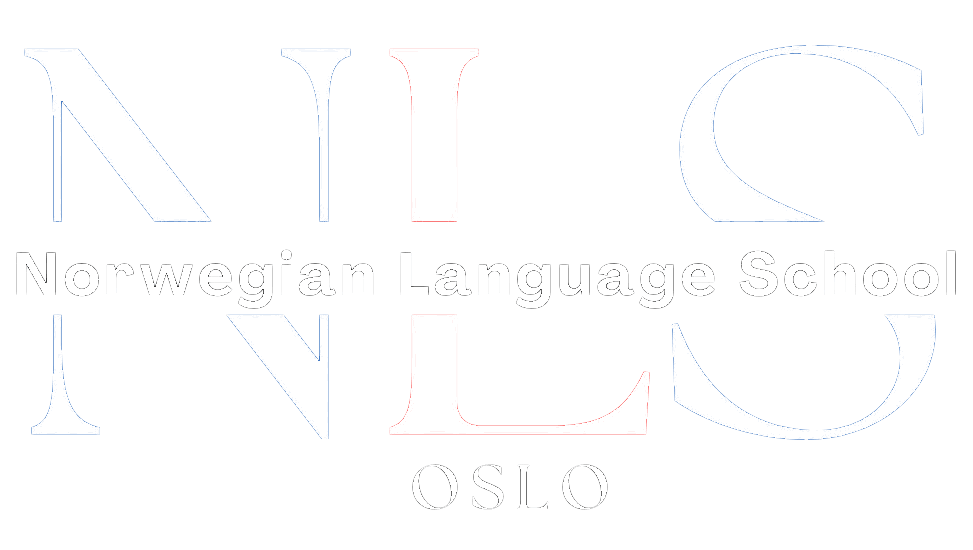

Unlocking Opportunities: A Guide to Norwegian Business Vocabulary for International Entrepreneurs
Norway is known for its strong economy and business-friendly environment, making it an attractive destination for entrepreneurs looking to expand their business internationally. However, in order to effectively communicate and build relationships with Norwegian partners and clients, it is essential to have a good understanding of Norwegian business vocabulary. This article will explore the basic Norwegian vocabulary for the workplace, essential phrases for business meetings, business etiquette in Norway, writing professional emails in Norwegian, negotiating in Norwegian, understanding Norwegian business culture and communication styles, common business terminology in Norwegian, tips for learning Norwegian quickly and effectively, and the importance of unlocking opportunities through Norwegian language skills.
Table of Contents
ToggleBasic Norwegian Vocabulary for the Workplace
In order to navigate the workplace in Norway, it is important to have a good grasp of basic Norwegian vocabulary related to job titles, departments, and office supplies. Some common job titles include “sjef” (boss), “ansatt” (employee), “leder” (manager), and “sekretær” (secretary). When referring to different departments within a company, you may use words such as “salg” (sales), “markedsføring” (marketing), “økonomi” (finance), and “produksjon” (production). Additionally, it is useful to know the names of common office supplies such as “datamaskin” (computer), “telefon” (telephone), “skrivebord” (desk), and “stol” (chair).
Essential Phrases for Business Meetings in Norway
Business meetings are an important part of conducting business in Norway. It is crucial to know how to greet and introduce yourself, ask and answer questions, make suggestions and give opinions, and wrap up the meeting. When greeting someone in a business setting, it is customary to shake hands and maintain eye contact. Introduce yourself by saying “Hei, jeg heter [name]” (Hello, my name is [name]). During the meeting, it is important to ask and answer questions politely. Use phrases such as “Kan du forklare nærmere?” (Can you explain further?) and “Selvfølgelig, jeg kan svare på det” (Of course, I can answer that). When making suggestions or giving opinions, it is important to be respectful and considerate. Use phrases such as “Jeg vil gjerne foreslå” (I would like to suggest) and “Jeg er enig i det du sier” (I agree with what you’re saying). Finally, when wrapping up the meeting, it is customary to thank everyone for their time and input. Say phrases such as “Takk for møtet” (Thank you for the meeting) and “Vi snakkes snart” (We’ll talk soon).
Norwegian Business Etiquette: Do’s and Don’ts
Understanding Norwegian business etiquette is essential for building successful relationships in the workplace. Punctuality is highly valued in Norway, so it is important to arrive on time for meetings and appointments. Norwegians also value personal space, so it is important to respect others’ personal boundaries and avoid standing too close or touching others without permission. When addressing colleagues and superiors, it is common to use their first name followed by their last name. For example, if someone’s name is “Anders Hansen,” you would address them as “Anders Hansen.” However, if someone has a professional title such as “Dr.” or “Professor,” it is appropriate to use their title followed by their last name. In terms of dress code, Norwegians tend to dress conservatively for business meetings. It is best to err on the side of being slightly more formal than casual.
How to Write Professional Emails in Norwegian
In today’s digital age, email communication is a crucial part of doing business. When writing professional emails in Norwegian, it is important to use the appropriate greetings and phrases. In formal emails, it is common to start with “Kjære” (Dear) followed by the recipient’s name. For example, “Kjære Anders Hansen.” In more informal emails, you can use “Hei” (Hello) or “Hallo” (Hi) followed by the recipient’s name. When closing the email, you can use phrases such as “Med vennlig hilsen” (Kind regards) or “Hilsen” (Regards). It is also important to use common email phrases and expressions such as “Takk for din henvendelse” (Thank you for your inquiry), “Vennligst se vedlagt fil” (Please see attached file), and “Jeg ser frem til å høre fra deg snart” (I look forward to hearing from you soon). When writing emails, it is important to be clear and concise, and to proofread for any grammatical or spelling errors.
Negotiating in Norwegian: Key Phrases and Strategies
Negotiating is a key skill in business, and knowing how to negotiate in Norwegian can give entrepreneurs a competitive edge. Some common negotiation phrases and expressions include “Kan vi diskutere prisen?” (Can we discuss the price?), “Jeg vil gjerne foreslå en annen løsning” (I would like to suggest an alternative solution), and “Hva er deres beste tilbud?” (What is your best offer?). It is important to be respectful and considerate during negotiations, as Norwegians value fairness and equality. It is also important to be patient and persistent, as negotiations in Norway can take time. Cultural differences should also be taken into account during negotiations. Norwegians tend to have a direct communication style, so it is important to be clear and straightforward in your communication. Additionally, building trust and relationships is crucial in Norwegian business culture, so taking the time to get to know your Norwegian counterparts can greatly enhance the negotiation process.
Understanding Norwegian Business Culture and Communication Styles
Understanding Norwegian business culture and communication styles is essential for building successful relationships in the workplace. In Norwegian business culture, building relationships and trust is highly valued. It is important to take the time to get to know your Norwegian counterparts on a personal level before diving into business discussions. Norwegians also have a direct communication style, meaning they value honesty and straightforwardness. It is important to be clear and concise in your communication, avoiding excessive small talk or beating around the bush. Additionally, hierarchy plays a role in Norwegian workplaces, with decision-making often being centralized at the top. It is important to respect this hierarchy and defer to those in positions of authority.
Common Business Terminology in Norwegian
In order to effectively communicate in a business setting in Norway, it is important to have a good understanding of common business terminology. Some vocabulary related to finance includes “regnskap” (accounting), “budsjett” (budget), “inntekt” (income), and “utgift” (expense). Marketing-related vocabulary includes “markedsføring” (marketing), “reklame” (advertising), “kampanje” (campaign), and “målgruppe” (target audience). Sales-related vocabulary includes “salg” (sales), “kunde” (customer), “tilbud” (offer), and “kontrakt” (contract). It is important to practice using these terms in context in order to become comfortable with their usage.
Tips for Learning Norwegian Quickly and Effectively
Learning a new language can be challenging, but there are several tips and strategies that can help you learn Norwegian quickly and effectively. Immersing yourself in the language through media and conversation is a great way to improve your language skills. Watch Norwegian movies or TV shows, listen to Norwegian music, and try to have conversations with native speakers. Using language learning apps and resources can also be helpful. There are many apps available that offer lessons and exercises specifically designed for learning Norwegian. Additionally, finding a language exchange partner or tutor can greatly enhance your learning experience. Practicing speaking with a native speaker can help improve your pronunciation and fluency.
Unlocking Opportunities through Norwegian Language Skills
In conclusion, knowing Norwegian business vocabulary and communication styles can greatly enhance an entrepreneur’s chances of success in Norway. By understanding basic vocabulary for the workplace, essential phrases for business meetings, business etiquette in Norway, writing professional emails in Norwegian, negotiating in Norwegian, understanding Norwegian business culture and communication styles, common business terminology in Norwegian, and tips for learning Norwegian quickly and effectively, entrepreneurs can unlock new opportunities for business and personal growth. Learning the language of the country you wish to do business in shows respect and dedication, and can help build strong relationships with partners and clients. So why wait? Start learning Norwegian today and open up a world of possibilities.

Norwegian A1-A2
Course Overview The Norwegian A1-A2 course is an online program focused on teaching essential Norwegian grammar and vocabulary. It includes a variety of materials and topics, with opportunities to interact with a Norwegian teacher entirely online. Curriculum Highlights The course covers key areas such as grammar and vocabulary and topics such as family, daily life, education, work, traditions, and leisure activities. Who Should Enroll? This course is perfect for beginners or those at the A1 or A2 levels who want to improve their Norwegian skills. What You Get Access to the full Norwegian A1-A2 course. A monthly 1-hour online conversation with a teacher. Many written and oral assignments. Comprehensive information on Norwegian grammar, Norwegian vocabulary and how to use them, important sentence structures, etc. Tips on additional resources to further enhance your Norwegian learning.
0 students enrolled
Last updated Dec 10th, 2024
If you want to learn Norwegian, you can register for classes here. We look forward to hearing from you and helping you become fluent in Norwegian.





